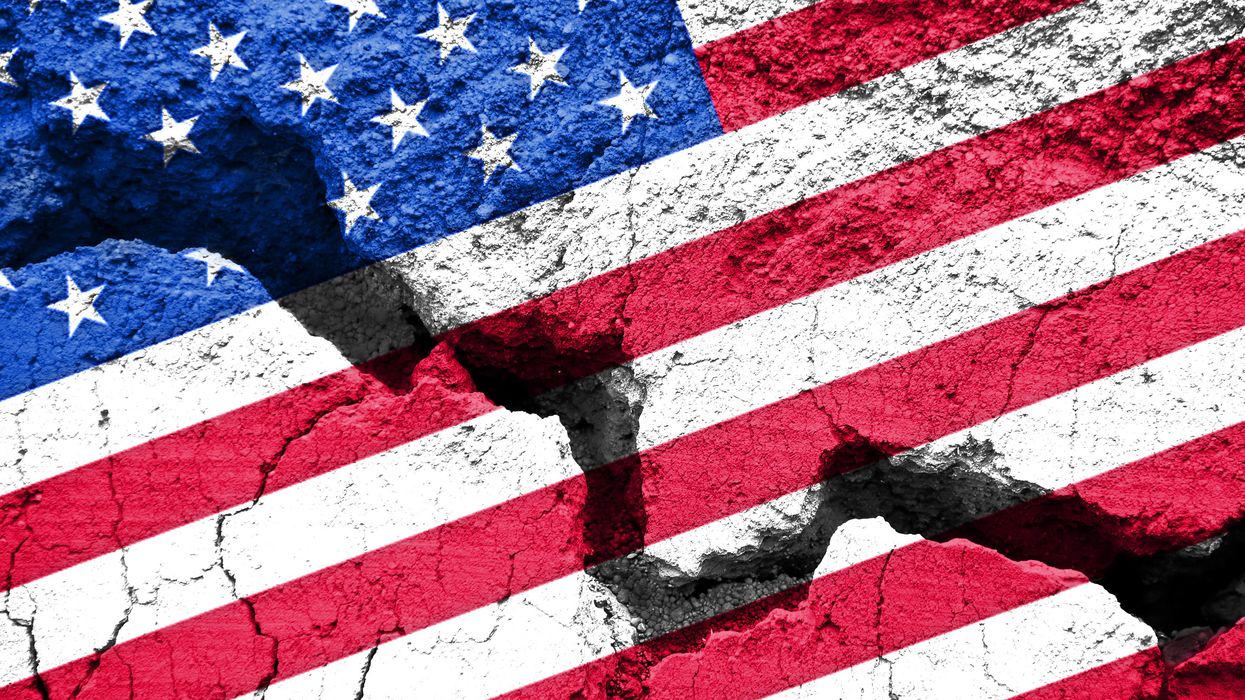With American democracy in decline, a new report urges that reforms addressing racial and political inequities are sorely needed.
For the first time in nearly 15 years, Freedom House released on Tuesday an in-depth report analyzing America's flawed democracy and what fixes are needed. This analysis comes on the heels of the nonpartisan research organization's annual report, in which it found the United States was part of a worldwide decline in freedom.
This downward trend in American democracy, according to Freedom House, accelerated during Donald Trump's presidency and ultimately amounted to an acute crisis when insurrectionists stormed the Capitol on Jan. 6.
"The erosion of U.S. democracy is remarkable, especially for a country that has long aspired to serve as a beacon of freedom for the world," the new report says. "The prominence and global influence of the United States mean that its woes have a uniquely damaging effect on democracy in the rest of the world."
Freedom House puts a number on that "erosion," giving the U.S. a democracy score of 83 out of 100 in its 2020 assessment — an 11-point drop from 2010.
"Democracy movements in other countries look to the United States for inspiration and support, and authoritarian leaders falsely point to America's problems as proof of democracy's inherent inferiority and as a sort of license for their own abuses of power," said Sarah Repucci, author of the report and vice president of research and analysis at Freedom House.
Repucci pinpointed three issues that have driven this long-term decline: unequal treatment of people of color, special interest influence in politics and partisan polarization.
The U.S. has struggled to uphold the ideal that all citizens are equal since its founding, the report says. Recent protests against police brutality and racial injustice brought a renewed focus to the country's disparate treatment of people of color, in particular Black Americans.
The increasing cost of elections and heightened influence of money in politics have also been detrimental. Americans have become more cynical because they see elected officials as beholden to these special interests, rather than their constituents.
Partisan affiliation in the U.S. has become intertwined with racial, ethnic and religious identities, meaning political attacks on the opposing party have become more extreme and personally threatening. The rise of polarization has made reaching a consensus appear impossible, and the country's two-party duopoly has only exacerbated this issue, according to Freedom House.
To strengthen these weak points in American democracy, the report recommends:
- Reducing barriers to voting and restoring federal preclearance of state voting rules.
- Ending gerrymandering by establishing independent state redistricting commissions.
- Passing legislation to improve transparency and close loopholes in campaign finance laws.
Despite the problems facing the U.S., there is still plenty of reason for hope, said Michael Abramowitz, president of Freedom House.
"The threat is not over, but we have faced dark days in our democracy before and found redemption by turning back toward our core values. It is time to do so again," he said.




















